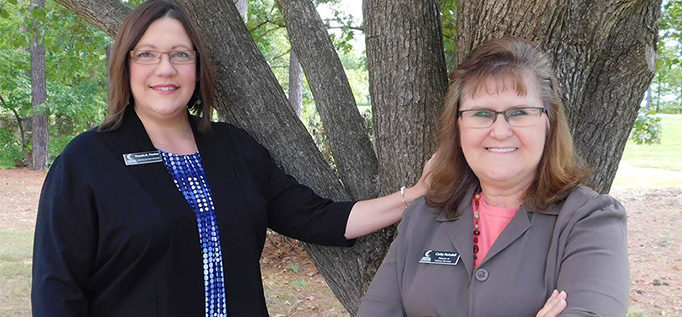A new look for manufacturing jobs
By William S. "Chip" Pate
October 19, 2016
A North Carolina college works to clear confusion about the manufacturing workforce and how to get onto a career path.
So many misunderstandings about manufacturing get tossed around that sometimes Cathy Swindell feels like she’s swimming against the tide.
As director of industry services for Central Carolina Community College (CCCC) in North Carolina, she works with local industry day in and day out to help them meet the challenges they face — whether it’s staffing or skills. She knows the nuts and bolts of the business as well as anyone and gets frustrated when she hears people argue that American manufacturing is disappearing.
She knows it’s not. In fact, an economist for the New York Times recently reported that domestic manufacturers are now operating at their historical peak — producing 47 percent more than they did 20 years ago.
So why do things seem so bleak?
A lot of it is due to a shifting job market. Technology has transformed manufacturing, and the new environment requires a new kind of worker. The kind of jobs that relied on lower, entry-level skills are disappearing. They’re being replaced by jobs requiring higher skills.
The state of manufacturing all depends on how you look at it.
On one hand, it’s true that some people without in-demand, technical skills can have trouble finding work. On the other hand, many companies are struggling to fill all of the more-complex jobs that have been created — especially with baby boomers retiring and generations just behind moving from entry-level work into management or specialized positions.
The good news: Those new jobs pay quite a bit more and offer a brighter future.
The key to landing work is getting “skilled up,” as Swindell puts it. Getting the basic expertise required for the skilled trades in high demand. Learning how to operate computers and spreadsheets. Becoming effective writers and presenters. Learning to repair complex equipment. Performing skilled trades jobs: maintenance, welding, machining.
And that’s where colleges like CCCC step in.
Forging ahead
When many colleges were reassessing or even eliminating vocational training, CCCC resisted the trend.
“One thing this college never did was get rid of the kind of vocational training that companies need now,” Swindell says. “That means we’ve been able to respond quickly to help workers who want to prepare for those emerging jobs.”
People have been flocking to curriculum programs in many high-demand areas, such as computer integrated machining; tool, die and mold-making; industrial systems technology, and electronics engineering technology. In fact, many of those curriculum programs — educational pathways that offer certificates, diplomas and degrees — are completely filled.
“They’re not just full,” Swindell says. “A lot of those students are hired before they even finish their certificate or degree.”
For others who want to acquire some additional skills, but aren’t quite ready to commit to an entirely new path, CCCC has a range of continuing education offerings — and many of them are new. The college recently introduced several continuing education courses and has pursued grants to expand the number of classes and options.
“We’re even working to create pathways from continuing education courses to our curriculum programs,” Swindell says. “We’re always looking to develop new opportunities based on what needs are out there in industry. We’re building new programs quickly, designing short courses and marketing them to help people get where they want to be.”
Read the full article in Community College Daily.
Continue the conversation on our LinkedIn group.
Photo: Pamela Fincher (left) and Cathy Swindell of Central Carolina Community College’s Dr. Paul Howard and Dr. Barbara James Innovation Center, which last week hosted 2016 National Manufacturing Day festivities to spotlight manufacturing careers to students and the community.



